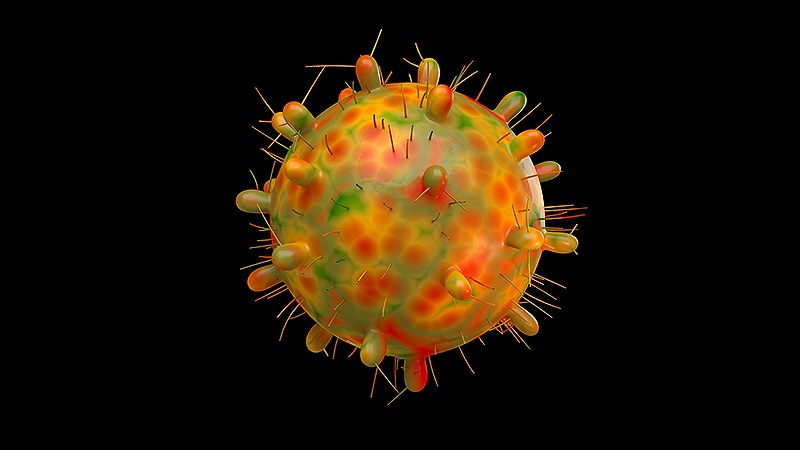Impact of Prior COVID Infection on T Cells Post-Vaccination
Core Concepts
Prior COVID infection may weaken T cells, but vaccination still enhances defense.
Abstract
The study explores the impact of prior COVID-19 infection on T cells post-vaccination, highlighting the importance of vaccination in boosting defense against the virus. Key points include:
CD8+ T cells weakened in individuals infected before vaccination.
Vaccination enhances defense even in those previously infected.
CD4+ T cells crucial in producing antibodies and are boosted by vaccination.
Study led by Mark M. Davis at Stanford Institute for Immunity, Transplantation, and Infection.
New tool using spheromer technology to study T cell responses.
Comparison of immunity in vaccinated, infected and unvaccinated individuals.
Previous studies on natural immunity vs. vaccination and hybrid immunity.
Limitations of the study in terms of sample size and generalizability.
Importance of further research to determine clinical significance.
T cells in tissues may respond differently than those in blood.
Study co-funded by NIAID and Howard Hughes Medical Institute.
COVID Infection Before Vax May Weaken Some T Cells: Study
Stats
"The CD4s are there, and they've been boosted by the vaccine even if you've been infected first," said Chuck Hackett.
"Everybody rushes to overinterpret the meaning of this," Gregory Poland.
"Usually what's in the blood is representative of what's in the tissues," Chuck Hackett.
Quotes
"The CD4s are there, and they've been boosted by the vaccine even if you've been infected first." - Chuck Hackett
"Everybody rushes to overinterpret the meaning of this." - Gregory Poland
"Usually what's in the blood is representative of what's in the tissues." - Chuck Hackett
Key Insights Distilled From
by Marcia Frell... at www.medscape.com 03-23-2023
https://www.medscape.com/viewarticle/990049
Deeper Inquiries
How can the findings of this study impact future vaccine development?
The findings of this study, particularly the development of a highly sensitive tool to study CD4 and CD8 T cell responses to SARS-CoV-2 infection and vaccination, can significantly impact future vaccine development. By understanding how these key immune cells respond differently, researchers can tailor vaccines to elicit a more robust and targeted immune response. This knowledge can aid in the design of vaccines that enhance the body's ability to fight off infections like COVID-19 more effectively.
What are the implications of the study's limitations on its broader applicability?
The study's limitations, such as being conducted on a relatively small number of people with one type of mRNA vaccine and data collected during the early wave of COVID-19, raise concerns about the broader applicability of the findings. It is unclear whether the results can be generalized to larger populations or different vaccine formulations. Therefore, further research involving diverse populations, vaccine types, and data from different stages of the pandemic is necessary to determine the broader implications of the study's findings.
How might the study's focus on T cells in blood samples differ from those in tissues like the nose and lungs?
While the study focused on T cells in blood samples to understand the immune response to SARS-CoV-2 infection and vaccination, it is essential to consider that T cells are also present in tissues like the nose and lungs. The immune response in these tissues may differ from that in the blood, as local tissue-specific responses play a crucial role in combating respiratory infections like COVID-19. Therefore, studying T cell responses in tissues, in addition to blood samples, can provide a more comprehensive understanding of the immune response to the virus and the effectiveness of vaccines in different parts of the body.
0
